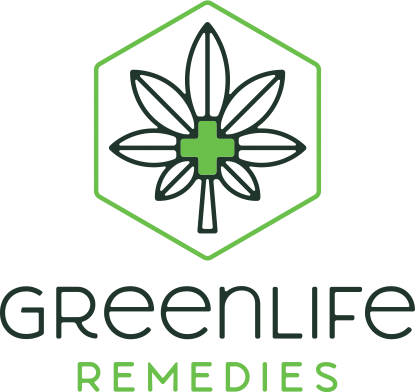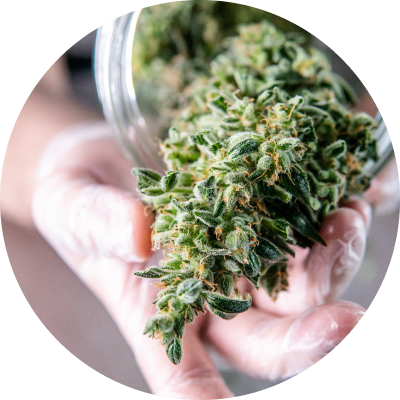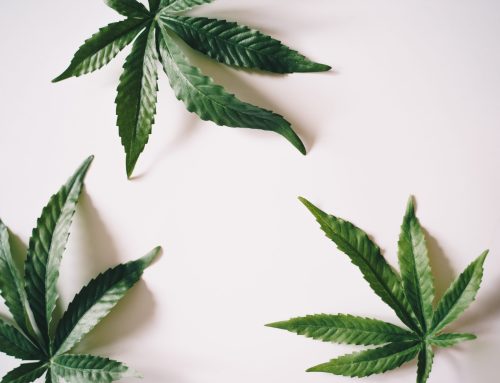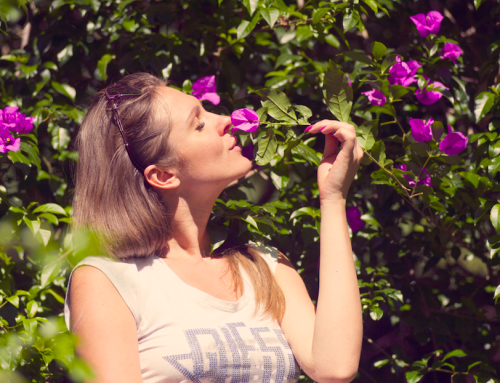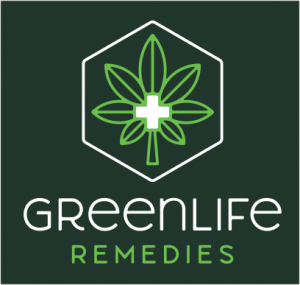If you’re familiar with cannabis at all, you probably know that a very common reason for so many people to use the compounds found in both hemp and marijuana is for anxiety relief. Anxiety is one of the most prevalent mood disorders in the world, and understandably, a number of people who struggle with anxiety choose to address their symptoms using natural, holistic methods that are more sustainable long-term.
The two most prominent compounds in cannabis are CBD (cannabidiol) and THC (tetrahydrocannabinol). While both CBD and THC belong to the same class of compounds known as cannabinoids, they affect us in quite different ways, and so if you’re struggling with anxiety, it’s important to know how each one behaves in the system. Let’s compare the two, especially now that they’re both more widely available than ever before.
What Defines Anxiety?
Anxiety is a mood disorder that affects about 1 in 4 people. Anxiety can be a lifelong condition for many.
Symptoms of anxiety include:
- An impending feeling of doom
- Feelings of nervousness, restlessness, and/or tension
- Chronic worry
- Difficulty sleeping
- Avoidant behaviors related to anxiety triggers
- Feelings of weakness in the body
- Increased heartrate
- Shallow breathing
- Lack of appetite
- Tension in the muscles
These symptoms can be intermittent or constant, depending on the sufferer, and can be incredibly debilitating. Being in a constant state of anxiety is taxing, capable of leaving the person feeling mentally drained and struggling to maintain a healthy and productive life. Besides that, anxiety triggers our adrenal response, flooding the body with adrenaline hormones. Over time, this can cause physiological changes in the body, resulting in issues related to immunity, digestion, and more.
What Types of Anxiety Disorders Exist?
There are many anxiety subtypes, and individuals can have one or more of these subtypes. Let’s explore the most common anxiety subtypes that exist.
- Generalized Anxiety Disorder (GAD): Generalized anxiety disorder describes a person who generally experiences feelings of anxiety, and the symptoms we listed earlier. They can have anxiety triggers, in which certain circumstances cause more acute levels of anxiety, and anxiety attacks.
- Social Anxiety Disorder: Social anxiety disorder describes a feeling of acute anxiety when in social settings, including fear of social embarrassment and rejection, resulting in feelings of extreme self-consciousness.
- Agoraphobia: Agoraphobia is a form of anxiety in which a person avoids situations, places, and circumstances out of fear of panic, embarrassment, or feelings of being trapped.
- Panic Disorder: Panic disorder is a condition in which a person experiences sudden panic attacks, which are episodes of intense terror, accompanied by physical sensations including rapid heartrate, sweating, dizziness, weakness, shaking, and other physical anxiety symptoms.
- Post-Traumatic Stress Disorder (PTSD): PTSD is a condition in which a person experiences severe anxiety due to a past traumatic event. They may avoid situations and circumstances which remind them of the event, and experience intense panic when they encounter triggers related to the event.
What Types of Treatments Are Used for Anxiety?
Anxiety is not considered a curable condition, but it is a condition that can be treated and managed. There are many different approaches one can take to managing and treating anxiety, and generally, those who do follow some form of treatment can end up living an extremely fulfilling and productive life.
Treatment #1: Psychotherapy
Psychotherapy refers to a multitude of therapy modalities, all of which can be effective at helping a person manage anxiety. Examples include cognitive behavioral therapy (CBT), talk therapy, acceptance commitment therapy (ACT), and eye movement desensitization reprocessing (EMDR).
Treatment #2: Medication
Many anxiety sufferers find relief through medication, and there are a number of different medications out there these days that can reduce feelings of anxiety and constant worry. If you want to explore medication for your anxiety, you and your doctor can determine which option is best for you.
Treatment #3: Mindfulness
Mindfulness is a general term that encompasses routines, habits, and lifestyle choices that aim to teach a person to bring awareness to the present moment, without evaluating or judging. Meditation is the most common technique for mindfulness.
Treatment#4: Natural Methods
Yes, there are natural/holistic products on the market that may offer anxiolytic effects, including herbs like lavender, lemon balm, and chamomile, as well as adaptogens like ashwagandha, which are intended to regulate the body’s adrenal response. Dietary changes may also help, as nutritional deficiencies and food intolerances are commonly linked to anxiety.
Understanding the Endocannabinoid System and Our Mood
Now, let’s bring cannabinoids into the conversation. Cannabinoids like CBD and THC are unlike any other plant derivatives out there, as cannabinoids are the only compounds found in nature that work directly with the body’s endocannabinoid system (ECS).
The endocannabinoid system is a system of the body present in all mammals, and its role is maintaining homeostasis throughout the body. In all bodily systems exist cannabinoid receptors, and cannabinoids like CBD and THC attach to these receptors, causing a chemical reaction that allows the receptors to regulate physiological processes.
CB1 receptors – cannabinoid receptors located in the brain – regulate a wide range of nervous system functions, among them our stress response, mood, and adrenal function. THC and CBD both work with CB1 receptors, and that’s why both of them can offer anxiolytic effects.
Cannabinoids for Anxiety: Do They Work?
Let’s take a closer look at both CBD and THC, and what they can do for those struggling with anxiety. Overall, there has been a lot of research, along with a staggering amount of anecdotal evidence, demonstrating the way in which both of these cannabinoids can play a role in helping a person manage anxiety symptoms.
CBD for Anxiety
CBD, or cannabidiol, is the cannabinoid that dominates the hemp plant, which belongs to the cannabis genus. CBD is a fully legal plant derivative, as is the entire hemp plant. It’s nonintoxicating, which means that you can take any amount of CBD that you’d like, and you won’t get high.
CBD, like we said, has been proven to work with cannabinoid receptors in the brain that can regulate processes related to anxiety. And, a number of studies have found that CBD shows impressive efficacy in addressing a variety of anxiety disorders. Its anxiolytic effects can balance mood and adrenal function, along with overall nervous system function, to minimize the body’s anxiety response. On a related note, cannabidiol has been shown to provide desirable effects to those who struggle with sleep. This is related to the compound’s potential calming effects, along with its more concrete influence on neurotransmitters involved in sleep, like serotonin, cortisol, and melatonin. Difficulty with sleeping is something that is extremely common among those with anxiety, as it can be incredibly hard to get the mind and body to relax. At the same time, failing to get enough sleep can make anxiety symptoms worse, by interfering with brain function.
THC for Anxiety
THC (tetrahydrocannabinol) is the dominant cannabinoid in marijuana, the other member of the cannabis genus, which, unlike hemp, remains federally illegal – although it is legal in many states throughout the country. THC is psychoactive, which means that unlike CBD, consuming it will produce a high that’s felt in both the mind and body.
THC has been used for anxiety relief for literally thousands of years. And, today, the medical marijuana industry acknowledges its efficacy for those who struggle with a variety of anxiety disorders. Like CBD, THC works with CB1 receptors in the brain that regulate processes related to anxiety. Studies do show that THC can offer relief to anxiety sufferers. In fact, this seems to apply not only to delta 9 THC, but other THC analogs as well, with delta 8 THC in particular being known for its anxiolytic effects. Delta 8 THC is 30% milder than delta 9 THC in terms of its psychoactive properties, and may be a good choice for those who want a less potent high.
One thing that we do wanna mention is that while all forms of THC seem to offer some level of anxiety relief, at the same time, anxiety is one of the most commonly reported side effects – something that doesn’t seem to apply to CBD. The reason why is because of the psychoactive nature of THC. Some individuals who are prone to anxiety find the experience of being high overwhelming, and notice feelings of increased hypervigilance, increased heartrate (due to a temporary, non-life-threatening reduction in blood pressure), and self-consciousness. This is a side effect that seems to be more associated with people who are new to THC, as well as those who simply take too much of it in one sitting.
Which of the Two is Better for You?
Now, let’s say that you’re experiencing anxiety, and you’re looking for a cannabis product to get relief. Which one should you go with: CBD or THC? A great question, and one to which, there is no actual objectively right or wrong answer. Essentially, both of these cannabinoids can offer relief, and even can produce very different responses.
Of course, if you’ve a strong preference when it comes to whether or not your cannabis product gets you high, then the decision will be easy. Also, as we previous touched upon, THC is, at the end of the day, more likely to cause a paradoxical effect – in other words, exacerbate the symptoms you’re trying to treat, as anxiety can be a side effect when you’re high.
Overall, we really encourage you to experiment with both of these cannabinoids as you feel comfortable. Both of them can provide the effects you’re looking for, and ultimately, both CBD and THC are nontoxic, so you don’t have to worry about any serious, life-threatening side effects associated with either of them.
Using CBD + THC Together
Another thing to keep in mind is that you can use both CBD and THC if you so choose. This can mean, say, taking CBD before work hours, and turning to THC at night, when you’re in a space where you’re comfortable being intoxicated. It can also mean taking the two at the same time, which, in fact, many people do.
CBD and THC are two cannabinoids found in the same plant material, and they have a synergistic relationship with one another. What this means is that taking them together at the same time can introduce a very distinctive effect unique from the sum of each part, separately.
More specifically, a staggering number of cannabis enthusiasts have reported that taking CBD and THC in combination with one another allows for a mellower, more soothing type of psychoactive experience. CBD seems to essentially “take the edge off” of the high of THC, and so generally, people are less likely to experience anxiety as a side effect of THC.
Other Aspects to Consider
Choosing between CBD or THC, or choosing to take them both, is something you’ll want to consider carefully. But, given the vast array of different cannabis products on today’s market, and all kinds of different ways to work them into your routine, it’s important to take a number of other important factors related to cannabis into account as well.
#1: Strain
The strain of a cannabis product matters significantly, if you’re going with a product that comes in different strains, like flower, vapes, or concentrates. These are full spectrum products that contain all of the naturally occurring compounds found in the plant. The strain is the cultivar of the species, which has its own distinctive configuration of these compounds – mainly cannabinoids and terpenes.
Generally, indica and indica-dominant hybrid strains are recommended for anxiety. These have higher levels of anxiolytic terpenes, and thus, can offer more of a relaxation effect to the user.
#2: Dosage
How much you end up taking plays a big role as well. With both CBD and THC, taking too low of an amount may barely make a dent in your anxiety. With THC in particular, taking too much can induce feelings of anxiety and paranoia, like we discussed earlier. We recommend following the label’s dosing instructions.
#3: Quality
Finally, you want to carefully consider the quality of the product, as fake and poorly made, ineffective cannabis products do exist. Buy from a reputable brand that has lots of positive reviews, and always look at the third-party lab reports provided by the brand, which offer information about quality, purity, safety, and potency, through a rigorous third-party testing process.
Can CBD and THC Offer Anxiety Relief? Research Says Yes!
Ultimately, it’s abundantly clear that both cannabidiol and tetrahydrocannabinol are capable of easing symptoms of anxiety. Each of these cannabinoids have been researched extensively for their effects on mood and nervous system function, and besides that, there’s clearly a reason why countless individuals around the world use these compounds daily for natural relief.
Go explore a wide array of cannabinoid-infused products, including those that highlight both CBD and THC, while having lots of choices regarding strains, product types, and more here at GreenLife Remedies! Check out our selection, and consider our lab-tested, top-shelf products as a natural way to experience a much-deserved feeling of calm.
